The views expressed in our content reflect individual perspectives and do not represent the authoritative views of the Baha'i Faith.
An online essayist I’ll refer to as “Jen” wrongly characterized the Baha’i view of the United Nations, so in this essay, I’ll try to set the record straight on her incorrect statements.
She advanced a series of deeply inaccurate assertions:
- that Baha’is are awaiting an antichrist who will force peace on the world;
- that Baha’is believe the UN is mankind’s only chance for unity;
- and that Baha’is hope to establish the antichrist’s financial system (whatever that might be).
Every one of these assertions flies in the face of Baha’u’llah’s actual teachings and runs counter to Baha’i belief. None are even remotely true. In fact, these kinds of demeaning, misinformation-driven attacks on the Baha’i Faith will likely backfire if Jen’s readers spend even five minutes on a Baha’i national or international website.
RELATED: The Baha’i Faith, Christian Prophecy, and the Promised Peace
Further along in her essay, “Jen” referenced 2 Peter 3:3-5, which reads, in part: “… in the last days scoffers will come, scoffing and following their own evil desires. They will say, Where is this ’coming’ he promised?” She followed this with a quote from “The Promise of World Peace,” a 1985 statement from the Universal House of Justice to the people of the world:
The time has come when those who preach the dogmas of materialism, whether of the east or the west, whether of capitalism or socialism, must give account of the moral stewardship they have presumed to exercise. Where is the “new world” promised by these ideologies? Where is the international peace to whose ideals they proclaim their devotion?
She then commented: “Of course the new world of peace will come when our Lord Jesus Christ returns to establish His kingdom on earth.”
I gave a fist pump and an “Amen!” at that — since Baha’is firmly believe that Baha’u’llah’s advent fulfills those prophecies — but inquired if she was suggesting the Baha’is are these “scoffers” saying, “Where is this ’coming’ he promised?”
Had she not noted that the Universal House of Justice questioned the efficacy of materialistic dogmas, not faith? Baha’is are the first to believe that the “new world of peace” will come as a result of Christ’s return with a new name. Baha’is, of course, believe that’s already happened with the revelation of Baha’u’llah, the prophet and founder of the Baha’i Faith.
But doesn’t the advent of Christ on his throne of glory involve the end of everything, a Christian might ask? Matthew Chapter 25 offers a parable that is also a prophecy about this very thing:
Then the kingdom of heaven shall be likened to ten virgins who took their lamps and went out to meet the bridegroom. Now five of them were wise, and five were foolish. Those who were foolish took their lamps and took no oil with them, but the wise took oil in their vessels with their lamps. But while the bridegroom was delayed, they all slumbered and slept. And at midnight a cry was heard: ‘Behold, the bridegroom is coming; go out to meet him!’
Then all those virgins arose and trimmed their lamps. And the foolish said to the wise, ‘Give us some of your oil, for our lamps are going out.’ But the wise answered, saying, ‘No, lest there should not be enough for us and you; but go rather to those who sell, and buy for yourselves.’ And while they went to buy, the bridegroom came, and those who were ready went in with him to the wedding; and the door was shut. Afterward the other virgins came also, saying, ‘Lord, Lord, open to us!’ But he answered and said, ‘Assuredly, I say to you, I do not know you.’ Watch therefore, for you know neither the day nor the hour in which the Son of Man is coming.
It seems clear from Christ’s illustration that when he (the bridegroom) returns, those who were prepared, who awakened with their lamps lit, were taken into his home (the Kingdom of God), but those who were unprepared and came to him with their lamps lacking fuel or flame remained outside in the darkness.
RELATED: The Return of Christ: Incarnation or Manifestation?
Two things stood out for me the first time I reread this passage in light of the message of Baha’u’llah. One was that there was an “afterward.” Everything did not end; the wedding party went on but without the five foolish virgins. The second thing I noted was the similarity of Christ’s language in describing his conversation with the five foolish maidens and an earlier passage in Chapter 7 of the Book of Matthew. After instructing his audience on how to tell a true prophet from a false one, Christ noted:
Not everyone who says to Me, ‘Lord, Lord’, shall enter the kingdom of heaven, but he who does the will of My Father in heaven. Many will say to Me in that day, ‘Lord, Lord, have we not prophesied in Your name, cast out demons in Your name, and done many wonders in Your name?’ And then I will declare to them, ‘I never knew you; depart from Me, you who practice lawlessness!’
As a Baha’i, I believe the parable of the wise and foolish virgins has already played out — and that those who come to God with the lamp of their heart aflame with His love, who strive to live in accordance with His word, will always be welcome in His abode. But those the lamp of whose hearts have gone dark and who believe they are beyond the law, though they may have “done many wonders” in Jesus’ name, will be left behind.
Baha’u’llah wrote of the need for an enkindled heart in many of his messages to a benighted humanity, as he did in this passage:
These energies with which the Day Star of Divine bounty and Source of heavenly guidance hath endowed the reality of man lie, however, latent within him, even as the flame is hidden within the candle and the rays of light are potentially present in the lamp. The radiance of these energies may be obscured by worldly desires … Neither the candle nor the lamp can be lighted through their own unaided efforts … It is clear and evident that until a fire is kindled the lamp will never be ignited …







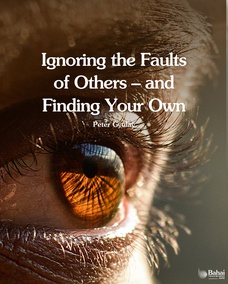
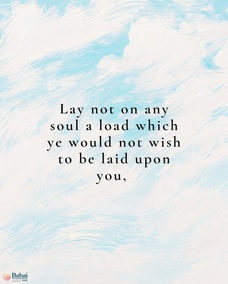
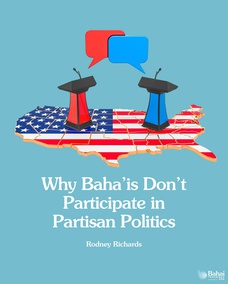

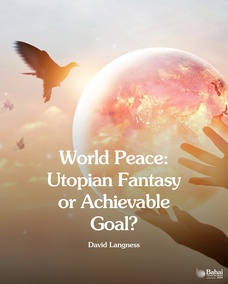
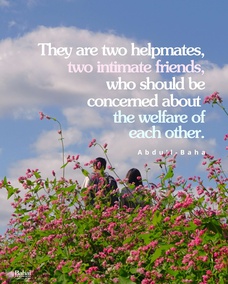
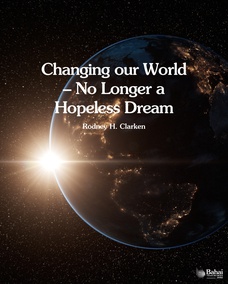


Comments
Sign in or create an account
Continue with Googleor